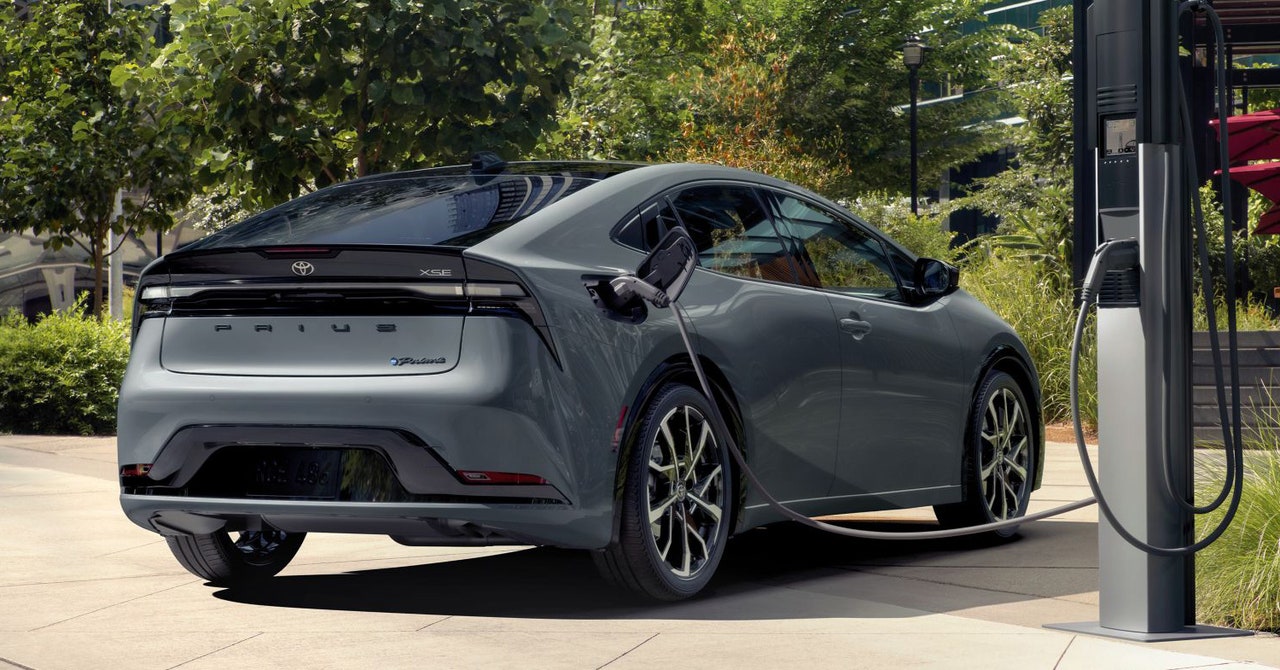Last week, the Biden administration made it official: American cars are really going electric.
The US Environmental Protection Agency finalized a rule, long in the works, that will require automakers selling in the United States to dramatically boost the number of battery-powered vehicles sold this decade, putting a serious dent in the country’s carbon emissions in the process. By 2032, more than half of new cars sold must be electric.
Automakers will have more leeway in choosing how to reach the government’s new tailpipe emissions goals, thanks to changes made between when the rules were first introduced in draft form nearly a year ago and now. One big, important shift: Plug-in hybrids are part of the picture.
In the draft of the rule, auto companies could only meet the gradually ratcheting zero-emissions goals by selling more battery-electric cars. But after lobbying from automakers and unions, which both argued that the EPA’s proposals were unrealistic, manufacturers will now be allowed to use plug-in hybrids to meet the standards.
This means that now carmakers can satisfy federal rules by ensuring that two-thirds of their 2032 sales are battery electric—or that battery-electric vehicles are just over half of their sales, and plug-in hybrids account for 13 percent.
Expect automakers to take advantage of these types of hybrid vehicles—which are powered primarily by electric batteries but supplemented by a gas-powered engine once the batteries deplete—as they race to meet the nation’s most ambitious climate goals yet.
There will be a lot of these things on the road. But the technology has a climate hitch: It’s only as emission-free as its drivers choose to be.
Gateway EV Drug
In recent months, executives for manufacturers including Audi, BMW, the Chinese EV-maker BYD, General Motors, Mercedes, and Volvo have suggested that the “compromise” cars could be a springboard that launches more cars and customers into the electric transition. And the policy shift could be vindication for Toyota, which has bet that customers will flock to gas-electric hybrids and plug-in hybrids rather than following Tesla down a fully electric path.
Globally, sales of plug-in hybrids are growing faster than battery-electrics (though this is partly because the hybrids have further to climb). Sales of plug-in hybrids jumped by 43 percent between 2022 and 2023, to almost 4.2 million, according to figures provided by BloombergNEF, a market research firm. Sales of battery-electric vehicles increased by 28 percent in the same period, to nearly 9.6 million.
The tech has some powerful upsides. The average US driver only puts in about 30 miles of driving each day, meaning most could get by most days using only a plug-in hybrid’s electric battery, and only using gas on longer trips.
Plug-in hybrids also make some automakers less nervous, manufacturing-wise: They’re more expensive to build than pure battery electrics (the whole two-motor thing), but the tech can sometimes be retrofitted into existing, gas-powered cars. This means less work, short-term, an exciting prospect for an industry that has to rejigger both how it builds its cars and how it sources the materials that will make their batteries go in the next few decades, as they move towards electrics.









